Nigeria is a country in development, as is the rest of Africa. Cities around the country have seen an increase in construction as a result. A common type of wall covering is made of tiles. A wide range of styles and sizes are now connected with tile designs. They are long-lasting, simple to clean, and aesthetically appealing in perpetuity. Tiles can be utilized virtually anywhere in the house, but they’re particularly well-suited for usage on the front walls and ceilings. For both residential and commercial properties, this is a great option to consider. Choosing the proper tile type for your home’s front wall or front tiles can be a difficult task, so here are some pointers to get you started.
Using natural stone as a front wall tile is very popular. The cost of stone cladding necessitates a lengthy and labor-intensive replacement process. It’s advisable to go for natural stone wall tiles. If you live in an apartment or flat, consider using natural stone wall tiles as an alternative to ceramic or porcelain tiles for your walls. Natural stone exterior tiles can be found in a variety of colors and patterns. Make a decision based on your personal preferences and style.
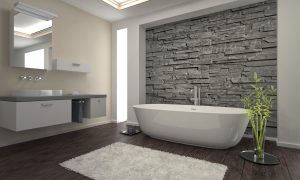
Common building material in India is brick. Because of this, the usage of brick tile for the front wall of Indian homes is frequent. Decorate the front wall height tile design in a way that isn’t limited by traditional red brick shades. Brick-like facade tiles come in a variety of hues from the market.
Marble wall tiles can be used to create contemporary and traditional-looking front wall tiles. The beauty of marble tiles is unmatched. However, deciding on a tile like this for the front wall cladding can be difficult. High-rise building facades need the use of marble wall tiles.
wall tiles design for outside house in nigeria
Environmental conditions and social and cultural elements have always played a role in the design of inside and outside wall tiles of houses. In Nigeria, colonization and the arrival of missionaries had a profound effect on the architectural style and the use of structures. Early churches in the Lagos Colony were designed in the Gothic Revival style. The missionaries’ primary residence was a one- or two-story wooden structure constructed from prefabricated material components in the classical style. Examples of neoclassical architecture can be seen in government buildings and private dwellings built by colonial colonists. A country’s cultural and political atmosphere affects everything from architecture to the materials used in construction. This is especially useful in areas that are exposed to the elements, such as walls.
Exterior walls necessitate tiles that are weather-resistant and durable. Stone tile constructions, porcelain tiles, cement tiles, and so on, are all popular choices for exterior wall tiling in Nigerian architecture. All buildings can benefit from the use of these tiles.
When the rulers and their families lived in office buildings, they were also used as administrative centers for the town. Recreational and industrial facilities were also partially constructed in the area. However, traditional Nigerian architecture does not acknowledge public health infrastructure.
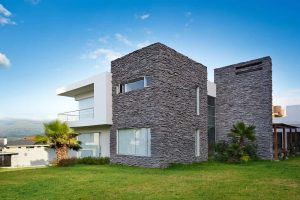
Shrines and traditional temples are examples of religious and office buildings. Administrative activities were concentrated in the palaces and homes of high-ranking officials. The palace usually received a third of the administrative staff’s attention. As a result of advancements in construction technology, less expensive building materials are not as long-lasting as more expensive materials. In terms of religious structures and business buildings, traditional Nigerian architecture cannot be compared to that of ancient Egypt or Rome. The usage of stone and mortar by these ancient civilizations was superior to that of traditional Nigerian architecture. Traditional materials and design ideas are still used, yet modern architecture is influential.
wall tiles price in nigeria
If you live in Nigeria and want to buy wall ceramic tiles, knowing the price of ceramic tiles and the factors that affect them can help you make a good choice before you purchase.
Today, ceramic tiles are as popular as a construction covering that they are often used instead of plaster and glass for constructing walls, floors, and even building facades. This is because ceramic tiles are extremely durable and easy to clean.
Building materials that were formerly considered impenetrable have been overcome by innovative ways of producing ceramic tiles in any design and color of their choice.
Nowadays, it doesn’t matter if the surface is on a parking lot, a manufacturing floor, the always-wet walls of a swimming pool, the roof of a magnificent hall, or the facade of a multi-story tower exposed to acidic materials. And make unique ceramics to fulfill the demands of society.
As a construction material, ceramic tile is a need, but the price of ceramic tiles has a significant impact on all of these factors. Ceramic tiles come in a wide variety of quality, design, and color, so it’s important to pay attention to the cost of the tiles.
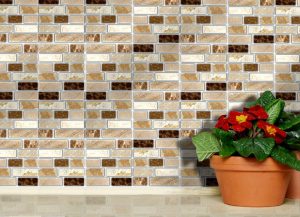
In the first place, the price of ceramic tile is influenced by the type of ceramic tile that is used. Different ceramic tile classifications exist, such as wall tiles and floor tiles, with labels like tiles, ceramic, porcelain, slabs, etc. It’s possible that wall tiles will be more expensive than floor tiles because they are more elegant and come in a wider choice of styles and colors than floor tiles. The price of waterproof and pool tiles, porcelain ceramics, and other types of ceramics might vary widely depending on where they are installed, too.
japanese wall tiles
Japanese ceramic wall tiles are created to deliver a clean, fresh air and tactile textured surfaces into interior spaces. This design concept was inspired by the Japanese craft of mud wall construction.
The tiles are constructed using a natural mineral that can be found in ash from volcanoes. Because of their microscopic pores and naturally occurring ionic characteristics, these tiles are able to absorb moisture and prevent the growth of allergen-causing mildew and mites.
Japanese tiles eliminate volatile organic compounds and function as a filter, which improves the quality of the air within buildings by eliminating odors that are common in homes, such as those coming from the garbage disposal, the bathroom, the washing machine, and even from the family’s pets.
They are highly recommended for use in common spaces such as living rooms, bedrooms, laundry rooms, and bathrooms. They can also be used in the regions of bathrooms that are not subject to water splashing on them, but they are not typically specified for use in kitchens due to the fact that they have a tendency to erase any nice smells that are produced by cooking.
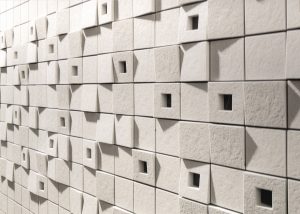
The Japanese startup INAX has developed some fantastic new tiling choices. Dent Cube is a three-dimensional porcelain stoneware cladding that was introduced for the first time at Cersaie 2011 in Bologna. It may be utilized to create indented pattern walls. Its design is intriguing because it results in a combination of geometric structures and colors, which, when applied to a room, whether it be indoors or outdoors, can provide a twist of harmony to the atmosphere of the room. The recesses in the patterns can be filled with a variety of colored glass, wood, or other materials, depending on what the situation calls for.
wall tiles in spanish
The majority of Spanish people are drawn to bright and cheery colors, and their architecture reflects this choice. This is where wall-mounted tiles are the best alternative for both aesthetics and practicality in these settings These tiles are created and sold in several hues. You should have a strong sense of time and be familiar with the markets where ceramic tiles are marketed to find high-quality tiles at a reasonable price. Due to limited color range, sunburn or damaged packing, the end of the season, or ceramic tile auctions conducted by ceramic tile manufacturers, high-quality ceramic tiles can be purchased for less. Buying ceramic tiles directly from the factory is one approach to save money on a wide area. Also one of the most significant strategies. These purchases require collaboration with your chosen ceramic tile factory and can only be made in bulk, such as for an apartment complex.
Tile installation prices Installation costs may affect ceramic tiles. Ceramic tile adhesive or cement might effect installation costs. Plain tile is often used as the foundation in many buildings. Basic tiles are cheaper than other tiles, but the price depends on the raw materials, construction, and finished product.
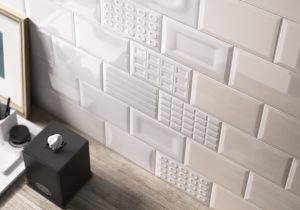
wall tiles Zimbabwe
There are a number of political and economic reasons why Zimbabwe does not make its own distinctive wall tiles, such as a lack of resources. We have found that each country requires a specific type of tile that is adapted to its cultural preferences, aesthetic preferences, and environmental conditions. We have discovered this through experience. Tiles come in a variety of sizes. Tiles might be as little as 20 centimeters by 20 centimeters or as large as 60 centimeters by 120 centimeters. When it comes to selecting furniture, the most important factor is being able to precisely gauge how much space you have. For example, it is not recommended to use large pieces of ceramic tile in small places since it gives the impression that the space is smaller than it actually is. Carbolds also advises against choosing ceramic tiles that are too small for large surfaces. It’s also a problem that different sizes of ceramics affect how the floor’s requisite slope is closed, for example. In addition, this has a vital effect on how much work the installer must accomplish.
As a result, ceramics are more expensive, which has an impact on the whole cost of installing ceramic tiles. This component alone can have a major impact on the whole project cost, so you must pay special attention to the installation costs. Installers, specialists, and seasoned professionals in this sector all advise you to enlist the help of competent and knowledgeable workers when taking on projects of this sort. If the slope of the installation site or the insulation of the surfaces is not done properly, the possible costs would be much greater. These rules may not appear important at first glance.
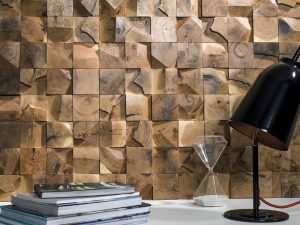
zellige aqua blue moroccan wall tiles
Zellige is handcrafted Moroccan clay tiles in aqua blue, rose, salvia, etc. Zellige tiles vary in tone, sheen, flatness, glaze level, surface roughness, shape, and size. Unique Zellige tile. In Tangier, Morocco, about 100 Mâllems make Zellige. This traditional Moroccan tile is constructed of Fez clay (Morocco). This unpolished clay is sculpted by hand and sun-dried. Raw tiles are burnt in a kiln to make biscuits called Bejmat, which are glazed tile by tile before a second firing to set the enamel. The last step is cutting the glazed beat into varied shapes and sizes to make Zellige.
Moroccan tiles (traditionally called “Zellige “) feature a stunning diversity of colors and textures. The tile-making process gives each tile its own individuality. Slight defects and peculiarities in the tile-making and finishing process endow each tile with unique color and texture, creating contrasting colors and patterns that complement any room.
Riad Tile offers 2″ x 6″ and 4″ x 4” glazed terracotta tiles in delicate greys, whites, pale rose, and light green.
Moroccan Zellige tile is perfect for kitchens, baths, and entryways. Easy to clean and maintain, they’re perfect for messy kitchens. When used in the bathroom, these tiles provide an easy-to-match color palette. Zellige tiles make any area pop.
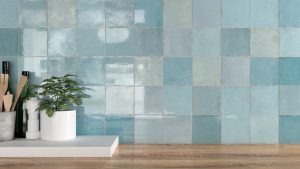
Riad is proud of its workmanship and art. Moroccan Zellige tiles give our artists a time-tested and difficult medium. Unrefined clay is hand-kneaded, molded, dried, and kiln-fired to set each tile’s unique appearance. After burning, a gloss enamel called “biscuit” is placed on raw tiles, providing opaque, pearlescent, and metallic finishes.
The difference in gloss and look allows these tiles to interact in fascinating ways, creating pictures like blue seas, green pastures, or lavender fields. These tiles are more than the sum of their parts.
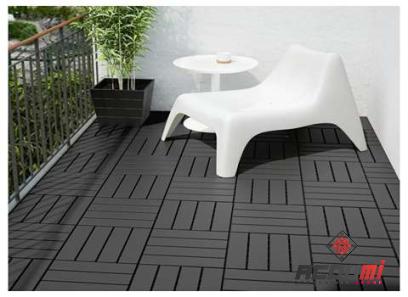
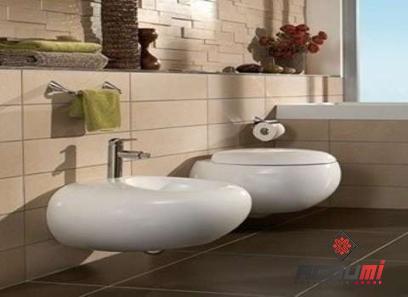
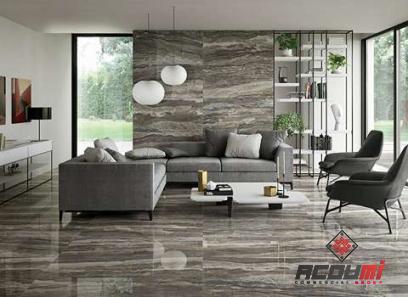
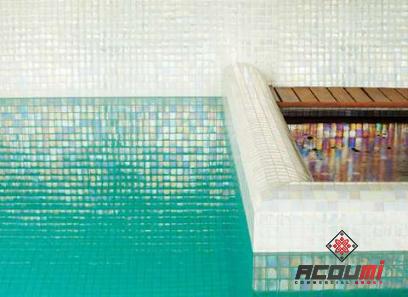
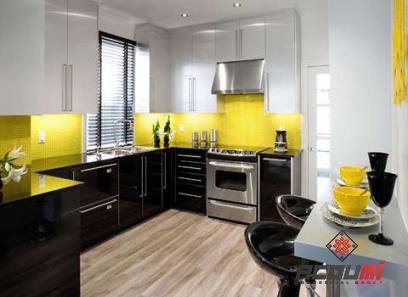
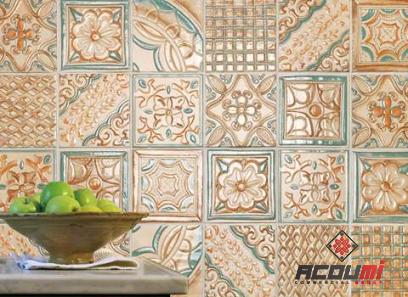
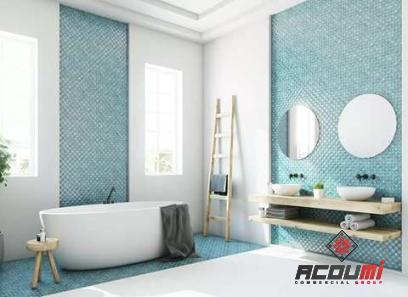
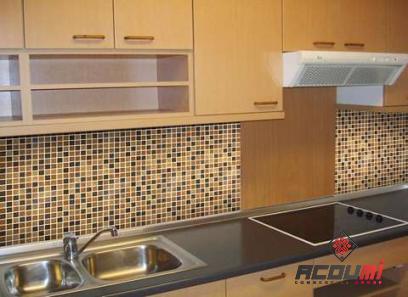
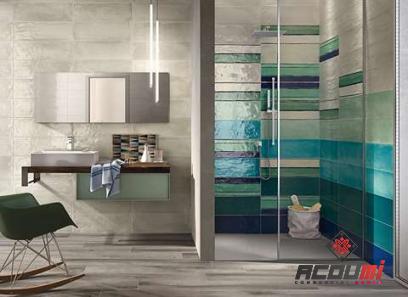
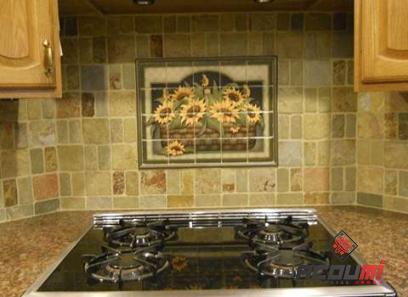
Your comment submitted.